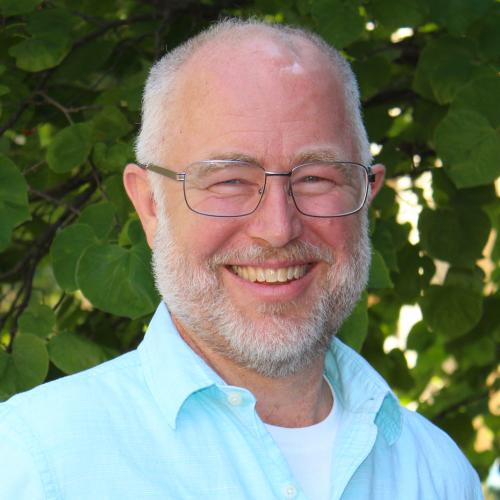Community leaders in East St. Louis plan to honor Martin Wolske, senior research scientist at the GSLIS Center for Digital Inclusion, for his years of service learning work in the region.
The Lessie Bates Davis Neighborhood House has announced that Wolske will be the guest of honor at the organization’s 104th Anniversary Dinner on November 9, 2013, at the Gateway Center in Collinsville, Illinois.
“We will be honoring Dr. Wolske for his outstanding commitment to service,” said William R. Kreeb, President and CEO of Lessie Bates Davis Neighborhood House. “Through his work at the University of Illinois, Martin has brought 500 students to the Metro East area creating computer labs at over 70 different locations. He has lectured and published extensively on service learning and internet access issues in impoverished communities. In 2008, Martin started bringing youth from New Horizon United Methodist Church and Twin City Bible Church in Champaign-Urbana for mission trips in East St. Louis. The groups have been instrumental in making incredible contributions to LBDNH and other agencies throughout the community.”
The Lessie Bates Neighborhood House operates the only nationally accredited childcare center in St. Clair County, two after school centers for youth, a homeless outreach center, and a food pantry serving 6000 individuals a month, and a resource office for social workers, an employment counselor, and homemaking service for seniors. The organization is the largest social service provider in the Metro East area serving the community out of multiple locations.
Wolske began working in East St. Louis in 1999 when the community organizations requested help bridging the digital divide. In 2009 and 2012, Wolske and his team secured funding from the Illinois Department of Commerce’s Eliminate the Digital Divide grant and began the “Sowing Seeds” program. He also participated in the Institute of Museum and Library Services grant, “Youth Community Informatics,” where his team worked directly with Lessie Bates.
In addition, Woske’s students have been able to participate in community engagement efforts in East St. Louis. His LIS 451 “Introduction to Networked Systems” and LIS 490ST “Community Informatics Studio” courses have worked in the area. In 2011, Wolske received Library Journal Magazine’s “Teacher of the Year” award. He has also received the Campus Award for Excellence in Public Engagement from the University of Illinois for his work in East St. Louis.
Tickets for the event may be purchased online at www.lessiebatesdavis.org.
About the Center for Digital Inclusion:
The Center for Digital Inclusion aims to foster inclusive and sustainable societies through research, teaching and public engagement about information and communication technologies. Our team works with a broad cross section of communities, organizations and governments to ensure they have the tools needed to succeed in a digital world. To learn more about the Center for Digital Inclusion, visit our website and follow us on Facebook and Twitter.
